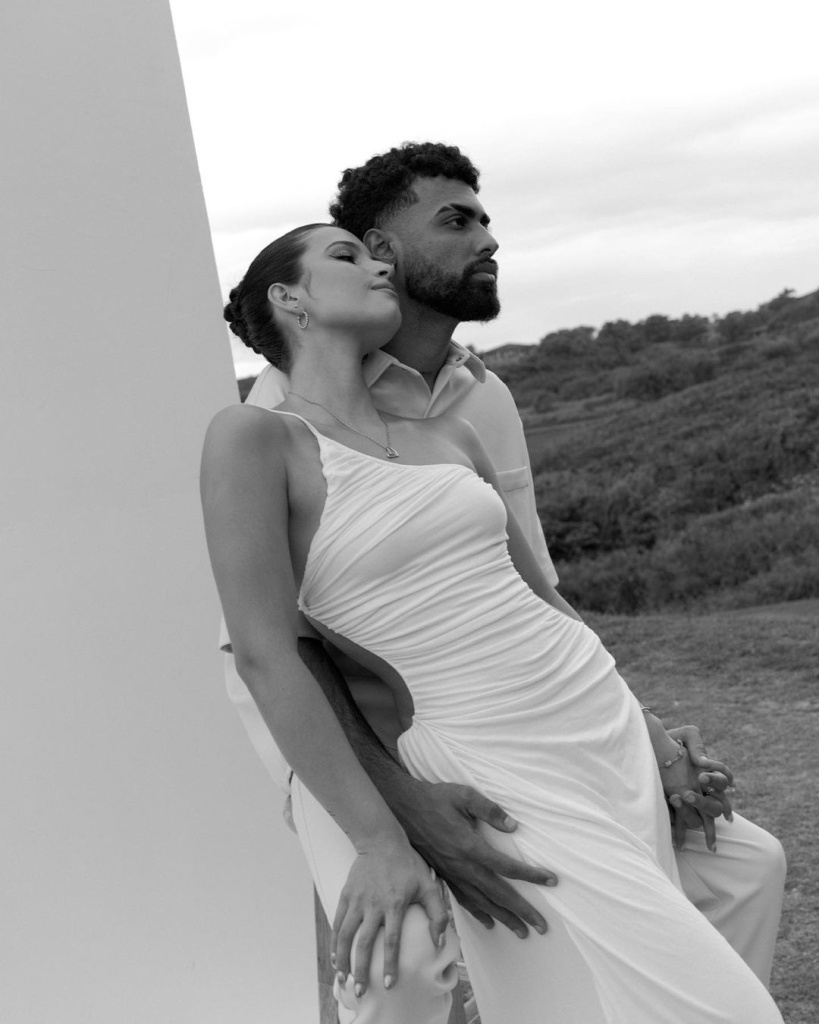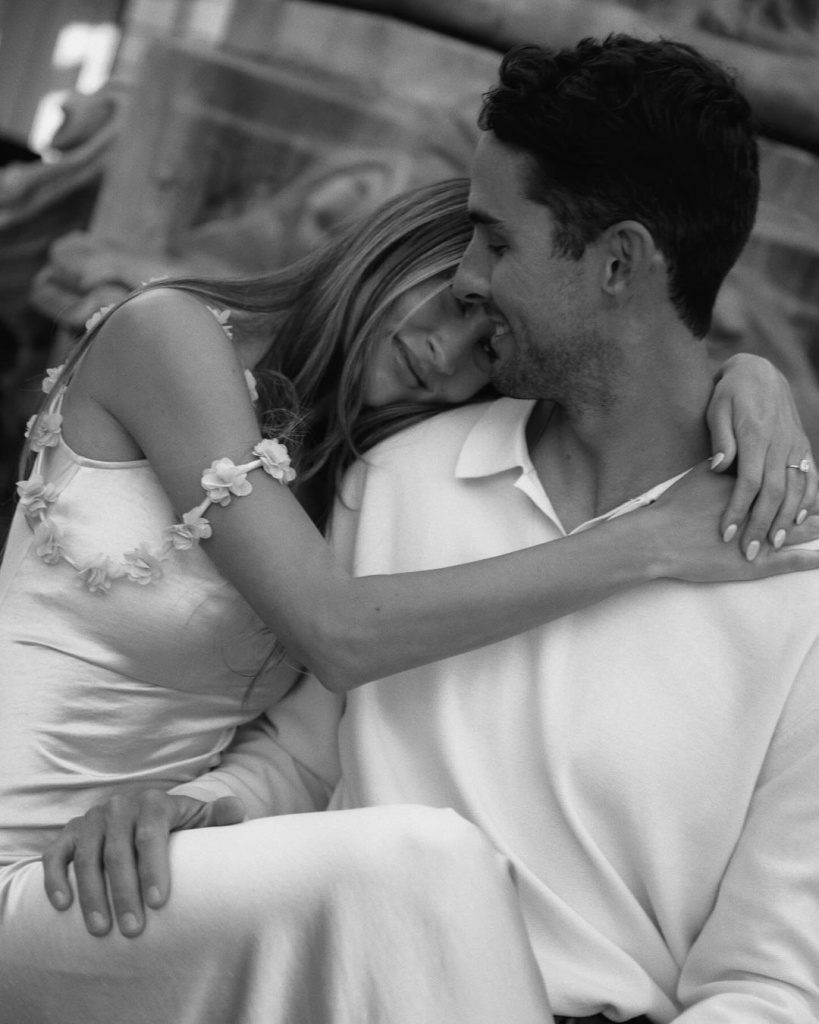Cold Feet? Addressing Pre-Wedding Jitters and Concerns with Your Partner
- Author: Natali Grace Levine
- Reading time: 8 min 14 sec
- Publication date: 04/13/2024
- Updated: 01/20/2025
Amid wedding bells and blossoming love, it's not uncommon for a sneaky sensation of nervousness to creep into the hearts of soon-to-be-married couples. Dubbed “cold feet,” this pre-wedding anxiety isn't just a plot in romantic comedies; it's a real, palpable feeling that many experience on the cusp of saying “I do.” This whirlwind of emotions is a mix of excitement, anticipation, and a touch of fear about the lifelong commitment ahead. It's as if your heart races at the thought of spending forever with your soulmate, yet your mind can't help but ponder over the 'what ifs'.
If you're reading this, perhaps with a jittery feeling in the pit of your stomach and nodding in agreement, take comfort in knowing you're not alone. Our journey today is about exploring these emotions, understanding them, and learning how to manage your pre-wedding jitters, share and overcome them with your partner. So, let's turn those cold feet into a warm, assured path toward marital bliss!

Things You Need to Know About Pre-Wedding Jitters

It's totally normal to have a few butterflies in your stomach as your wedding day approaches. After all, getting married is a huge life-changing event! But what do you do if those pre-wedding jitters turn into full-blown "cold feet"? Don't worry, you're not alone. Many couples experience this, and there are ways to work through it together.
It's Extremely Common
Almost every couple experiences some level of pre-wedding jitters. In fact, one study found that a staggering 96% of couples have some doubts or concerns before their wedding. That means it's virtually universal for engaged couples to grapple with these feelings to some degree.
So if you're feeling this way, take comfort in knowing you're very much not alone. Pre-wedding jitters are an incredibly common experience that most people go through. The fact that you're having these thoughts and feelings doesn't mean anything is wrong - it just means you're a normal, human person about to undertake a massive life transition.
It Doesn't Mean You're Making a Mistake
While the intensity of pre-wedding jitters can certainly be unsettling, it's important to remember that these feelings don't necessarily indicate you're with the wrong person or making the wrong choice. Getting married is a huge, life-altering decision, so a little uncertainty is completely natural and understandable.
Even the happiest, most compatible couples can still have moments of doubt leading up to their wedding day. These feelings often stem from the gravity of the commitment, the stress of wedding planning, or just general nerves about the unknown future. But that doesn't mean your relationship is doomed or that you shouldn't go through with the wedding. As long as your core feelings about your partner and your desire to spend your lives together are still there, a few pre-wedding jitters here and there don't have to be a dealbreaker.
It Can Be Worked Through
The great news is that pre-wedding jitters, or "cold feet" before the wedding, are absolutely manageable and can be worked through successfully. While these feelings may seem scary in the moment, they don't have to derail your wedding plans or your relationship.
With the right approach, you can navigate these pre-wedding doubts and concerns. It may take some work, but couples who are willing to have honest conversations and address the issues head-on often come out the other side feeling even more confident and committed to their marriage.
Causes of Cold Feet or Pre-Wedding Jitters

The period leading up to a wedding can be an emotional rollercoaster for many couples. Excitement about taking that next big step often coexists with nagging feelings of uncertainty and anxiety. But what's really behind these unsettling doubts? While the specific triggers can vary from couple to couple, there are a few key factors that tend to contribute to pre-wedding jitters. Understanding the root causes can help you and your partner navigate these feelings with empathy and care.
Unrealistic Expectations
One major driver of pre-wedding jitters is the gap between the idealized vision of marriage and the realities of everyday life as a married couple. Many people grow up with romanticized notions of what a "perfect" marriage should look like - the fairytale wedding, the unending passion, the seamless blending of two lives.
But the truth is, even the happiest, most compatible marriages require constant work, compromise, and adjustment. When the day-to-day grind of shared finances, household duties, and conflict resolution sets in, it can be jarring for couples who aren't fully prepared.
Fear of Losing Independence
For many people, especially those who have enjoyed an independent lifestyle for years, the prospect of merging their life so completely with another person's can be daunting. The idea of compromising their freedom, routines, and sense of self can trigger anxieties about "losing" who they are. This fear of losing one's independence is a very common source of pre-wedding jitters. The lifelong commitment of marriage can feel like giving up too much autonomy, even for those who are deeply in love.

Relationship Baggage
For many couples, past relationship wounds or unresolved issues can linger in the back of their minds as they approach marriage. Maybe there are lingering trust issues from an ex's infidelity. Or perhaps one partner is still working through the trauma of a previous divorce.
These kinds of relationship "baggage" can definitely contribute to pre-wedding jitters. The prospect of making such a huge commitment can dredge up fears about history repeating itself or old insecurities resurfacing. Couples have to do the hard work of addressing these underlying issues before they can move forward with confidence.
Societal Pressures
It's also important to acknowledge the role that societal pressures and expectations can play here. In many cultures, there is immense pressure - overt or subtle - to get married by a certain age, to have a grand wedding, to live up to idealized gender roles, etc. When couples feel burdened by these external expectations, it can absolutely contribute to feelings of doubt and anxiety. The true excitement of the wedding can get overshadowed by worries about meeting social standards or living up to others' visions of the "perfect" marriage.
Ultimately, the reasons you get cold feet before your wedding are complex and highly personal. They often stem from a combination of internal fears, external pressures, and the simple difficulty of merging two independent lives into one. Read on for some tips on how to manage them.

Ways to Deal with and Manage Pre-Wedding Jitters

With open communication, intentional self-reflection, and a willingness to be vulnerable, you can absolutely navigate the pre-wedding jitters and reclaim the excitement and confidence about your marriage.
Reflect Deeply with These 25 Questions
One of the most important things you can do when calming pre-wedding jitters is to take the time for deep, honest self-reflection. Journaling or discussing these questions with your partner can help uncover the root causes of your doubts and provide clarity:
- What are my core values and life goals? How do they align (or not) with marriage?
- What do I most look forward to about being married to my partner?
- What specific concerns or fears do I have about our relationship or the future?
- How would I describe my communication and conflict-resolution style?
- Do I have any unresolved issues from past relationships that could be influencing my mindset?
- What are my thoughts and feelings about making a lifelong commitment?
- What does a "successful" marriage look like to me? How realistic are those expectations?
- Am I worried about losing my independence or sense of self in the marriage?
- What role do social/family pressures play in my feelings about our wedding?
- When I imagine our life together in 5, 10, 20 years, what do I see?
- Are there any major life changes (job, kids, etc.) that I'm anxious about?
- Do I have any doubts about my partner's suitability as a life partner?
- What are the core strengths and weaknesses in our relationship?
- How well do we handle difficult conversations and resolve conflicts?
- What are the specific aspects of wedding planning that are causing me stress?
- Am I feeling any pressure to go through with the wedding even if I have doubts?
- What does my "gut" tell me about whether I'm making the right decision?
- How would I feel if we decided to postpone or call off the wedding?
- What would I regret more - going through with the wedding or not going through with it?
- What gives me the most joy and excitement about marrying my partner?
- How do I think our relationship and love for each other would be affected if we called it off?
- What are the specific things I need from my partner to feel more confident?
- Are there any pre-marital counseling or self-reflection exercises we could do?
- How can I be more intentional about self-care during this stressful time?
- What is the core issue underneath my pre-wedding jitters that needs to be addressed?
Truly taking the time to reflect on these types of profound, emotionally charged questions can be an incredibly illuminating process. It allows you to get more clarity on the root causes of your pre-wedding jitters, rather than just reacting to the surface-level anxiety.
Have an Open Conversation with Your Partner
Once you've done some deep personal reflection, the next crucial step is to have an open, honest conversation with your partner about what you're experiencing. This is not the time to put on a brave face or try to hide your doubts. Bringing your partner into the process is essential.
Sharing your fears, concerns, and uncertainties in a vulnerable but constructive way can do wonders. Your partner may be able to offer reassurance, provide a helpful perspective, or work with you to address specific issues. At the very least, they'll understand where you're coming from and can better support you through this challenging time.
It's important to approach this conversation with empathy, care, and a solution-oriented mindset. Avoid placing blame or ultimatums. Instead, frame it as a collaborative effort to work through your pre-wedding jitters together. After all, you're in this as a team.
Seek Support from Trusted Confidants
While having open dialogues with your partner is crucial, it can also be incredibly helpful to seek external support and perspective from trusted friends or family members. Sharing your thoughts and feelings with loved ones who know you well can provide valuable reassurance and guidance.
Confiding in people you trust allows you to get input from outside the immediate situation. They may be able to offer insights you haven't considered or share their own experiences navigating pre-wedding jitters. Having that additional sounding board can make a big difference. Just be selective about who you confide in. You'll want to choose people who will be caring, non-judgmental, and focused on helping you work through your doubts, rather than adding to your stress or second-guessing your relationship.

Focus on Self-Care and Stress Management
Wedding planning is notoriously stressful, and that strain can definitely exacerbate any pre-existing feelings of cold feet. That's why it's so important to make self-care and stress management a priority during this time.
Take intentional steps to nurture your physical, mental, and emotional well-being. Make sure you're getting enough sleep, eating nourishing foods, and finding healthy outlets for managing anxiety. Consider trying relaxation techniques like deep breathing, meditation, or gentle exercise.
It's also critical to set aside time for activities that bring you joy and a sense of balance, whether that's a date night with your partner, quality time with friends, or simply carving out moments of solitude. Maintaining perspective and inner calm can make a world of difference when wading through the turbulence of pre-wedding jitters.
Seek Professional Support if Needed
In some cases, the weight of pre-wedding jitters may feel overwhelming, and seeking professional support can be tremendously helpful. Here’s a top tip for dealing with pre-wedding jitters: consider working with a therapist or counselor who specializes in relationships and wedding-related anxiety. A trained mental health professional can provide an objective, expert perspective on what you're experiencing. They can help you unpack the root causes of your doubts, develop healthy coping strategies, and even facilitate important conversations with your partner.

Remember, there's no shame in reaching out for professional support during this transition. Taking care of your mental health is just as important as planning the logistics of your wedding day.














